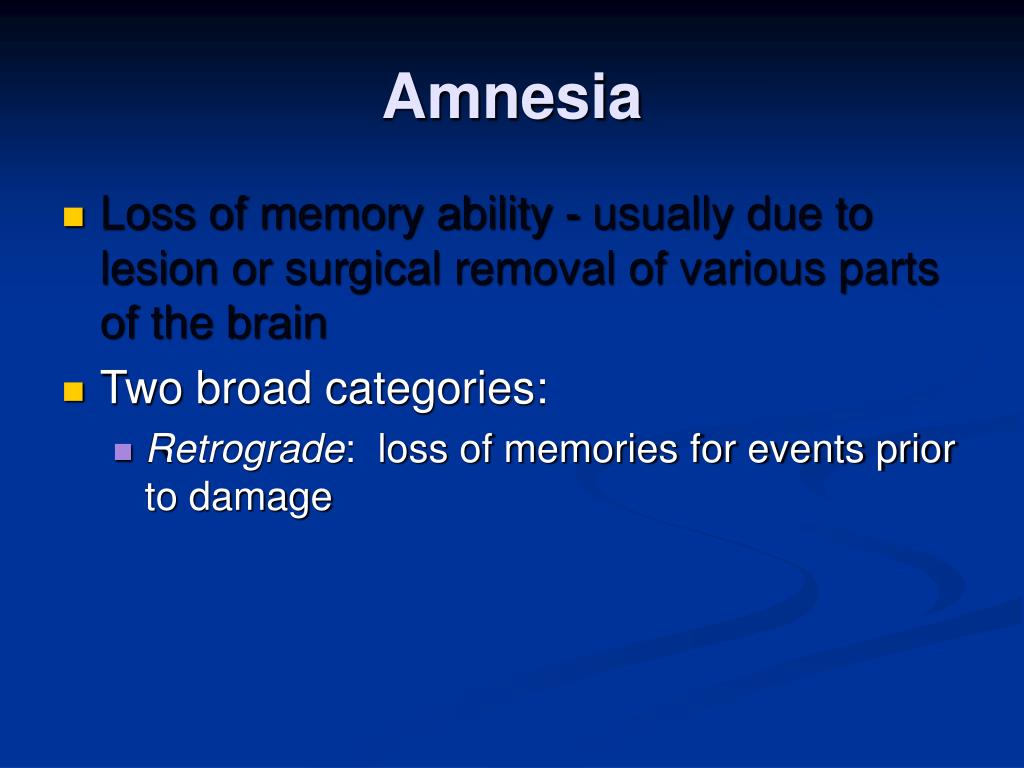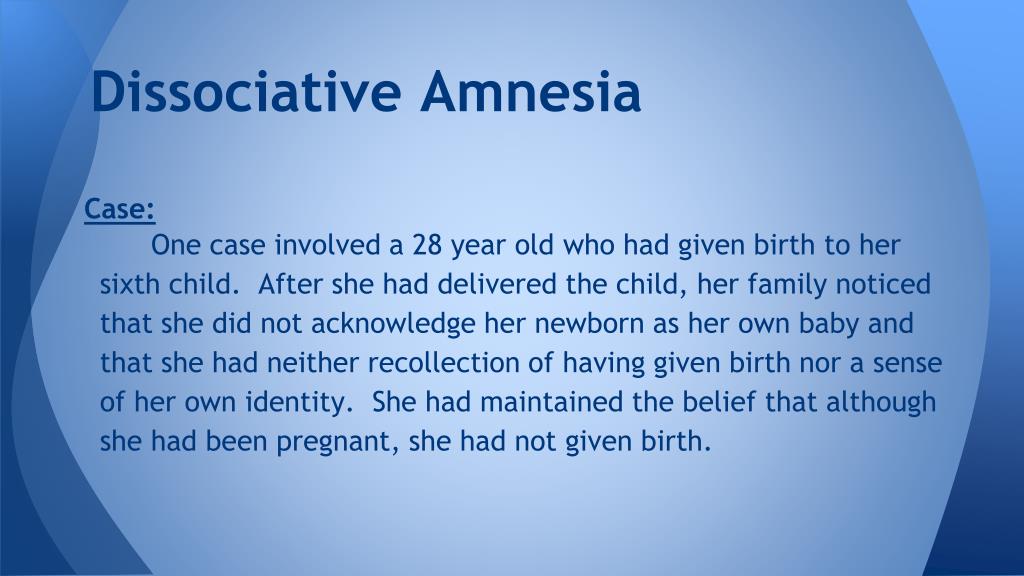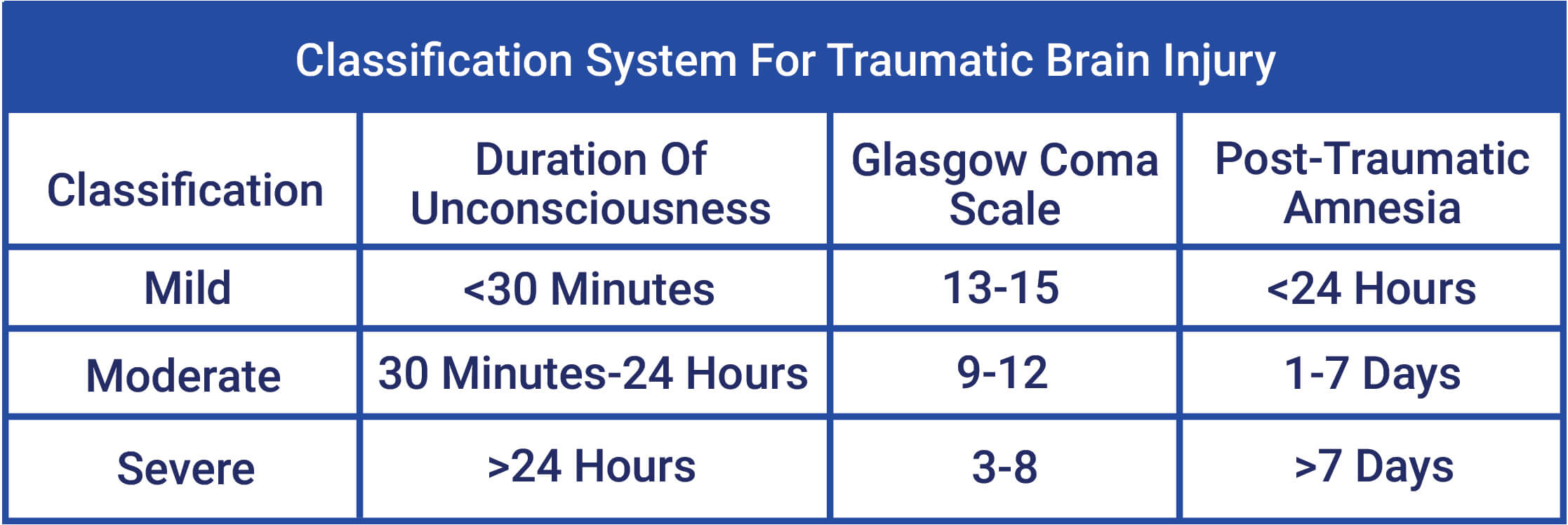

Pattern separation is the process your brain goes through to differentiate between similar experiences.
#Types of amnesia involving trauma manual
Previously known as “psychogenic amnesia,” dissociative amnesia is listed as a mental health condition in the Diagnostic and Statistical Manual of Mental Disorders, 5th edition, text revision (DSM-5-TR).ĭissociative amnesia is mainly characterized by an inability to recall important information about yourself as a result of dissociation, which is most commonly related to trauma or extreme stress.ĭissociative amnesia often occurs with symptoms of PTSD. Some concepts related to traumatic memory loss that are explored by different psychologic approaches include: Memory loss is a complex symptom and can be experienced as a result of a number of trauma-related mental health conditions. While PTSD can involve trauma-related memory loss, not all traumatic stress results in PTSD, and not all trauma-related memory loss is linked to PTSD. When you think of memory loss and trauma, you may think of post-traumatic stress disorder (PTSD), a well-known mental health condition that can include symptoms like flashbacks and nightmares. the intensity and length of the incident.your emotional resources at the moment of the event.the support you received immediately after the event.your mental health status at the moment of the event.This effect may vary based on factors such as: Not every traumatic experience leads to memory loss. So, the traumatic experience that leads to memory loss may be different for everyone. What’s significantly painful to you may not be the same as what’s significant for somebody else. Trauma refers to an emotional response to any significantly distressing event or incident. More research in humans is needed to determine the exact mechanism that leads the brain to encode traumatic memories differently.

Unlike regular memories, these alternate-pathway memories are locked away, only able to be accessed if the same receptors become active again. In other words, they take a different road than typical memories so those memories don’t arrive at the usual destination. It’s like a memory road in the brain, so to speak.Īccording to the research, fear-inducing events affect specific cell receptors - for the amino acid GABA - in these paths in the brain.īecause of that, those receptors bypass the traditional memory pathways during a fearful event, creating a new memory network. Memory subpaths refer to a chain of communication between brain cells, or neurons, that are in charge of sending information about lived experiences. These paths seem to activate only during a fear response. How the brain suppresses these memories was shrouded in mystery until 2015, when a rodent study indicated the existence of memory subpaths in the brain. Amnesia is taking you away and protecting you from reliving that experience. It may lock that memory away from your consciousness.

If an experience has been significantly disturbing and painful, even the thought of it may still be overwhelming.Īs a result, your brain could take over and decide you don’t have to relive that experience in your mind. One possible reason your brain pauses extremely painful memories is that it’s trying to protect itself. When it comes to amnesia from a traumatic experience, however, memories may still be there - just hidden away and inaccessible.

In some cases, such as with injury or illness, memories may fade away as the result of damage to specific parts of the brain.


 0 kommentar(er)
0 kommentar(er)
